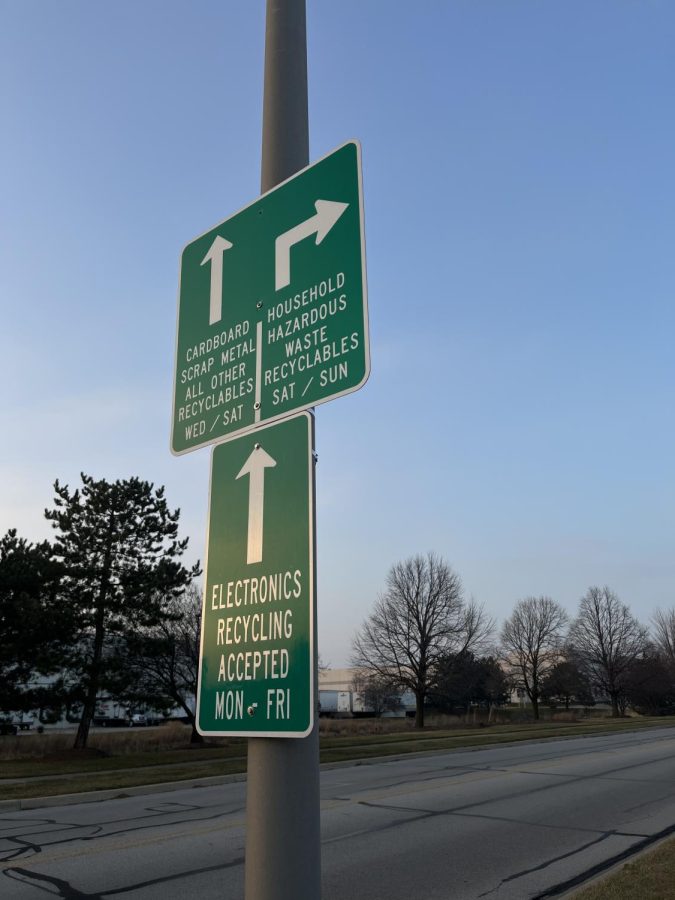Unsolved Mystery: The Recycling System
A sign directing people towards different sections of the Naperville Recycling Drop-off.
December 13, 2022
Do you ever wonder what happens to your empty Amazon boxes or soggy milk cartons once you toss them in your recycling bin? Do they really get repurposed, or do they just end up in landfills along with the rest of your trash? There is often much confusion surrounding what is actually accepted by our community recycling facilities. In fact, there is confusion in all aspects of the recycling process.
I visited our town recycling center and I was greeted with a closed visitors office, locked until an appointment is made. I made my way to the scrap metal and cardboard drop-off, and I finally found a worker to talk to. Basically, even the employees are not informed about the recycling process and what actually happens to these materials.
I asked whether it was more efficient to recycle cardboard boxes by putting them in our bins at home or bringing them to the recycling drop-off. The worker was very unsure about what happens to the items we place in our own recycling bins. He suggested bringing them to the recycling center because he could say with certainty that the items there do not end up in landfills. The items brought to the recycling center are examined for contamination on sight, therefore the materials are ready to be repurposed when they are sent off.
On the other hand, if an item in our recycling bin at home is contaminated, what happens to the load? Some say that the entire bin is now considered contaminated and is therefore thrown into landfills with other discarded trash. Waste management companies do not want to put in the money and resources to sort through recycled items, not to mention the aspect of time.
It seems like no one really knows what happens to the items we recycle at home, which is a huge cause for concern. Why is it that the biggest obstacle within our society in terms of recycling and transitioning to more eco-friendly means of disposal is the simple lack of information?
As taxpayers, it is only fair that we know what our money is being used for. If the items we use water to wash in order to avoid contamination do not even get recycled in the first place, that is a waste of our resources. The strange thing is that companies actually do get money for these recycled materials, so why wouldn’t they try harder to inform the community about proper recycling?
In the past, there was a push to educate and notify the public on the do’s and don’ts of curbside recycling, however, this effort seems to have dwindled in recent years. It seems that recycling companies are almost deliberately keeping this a secret at this point, for how else would this have become such a mystery?
It is just so frustrating that this knowledge is so inaccessible, and it is almost ridiculous how difficult it is to find someone with tangible answers. However, it was encouraging to see that there were people utilizing the recycling drop-off (or at least attempting to). It seems that for now this is the only sure way to make sure our items are getting repurposed.


